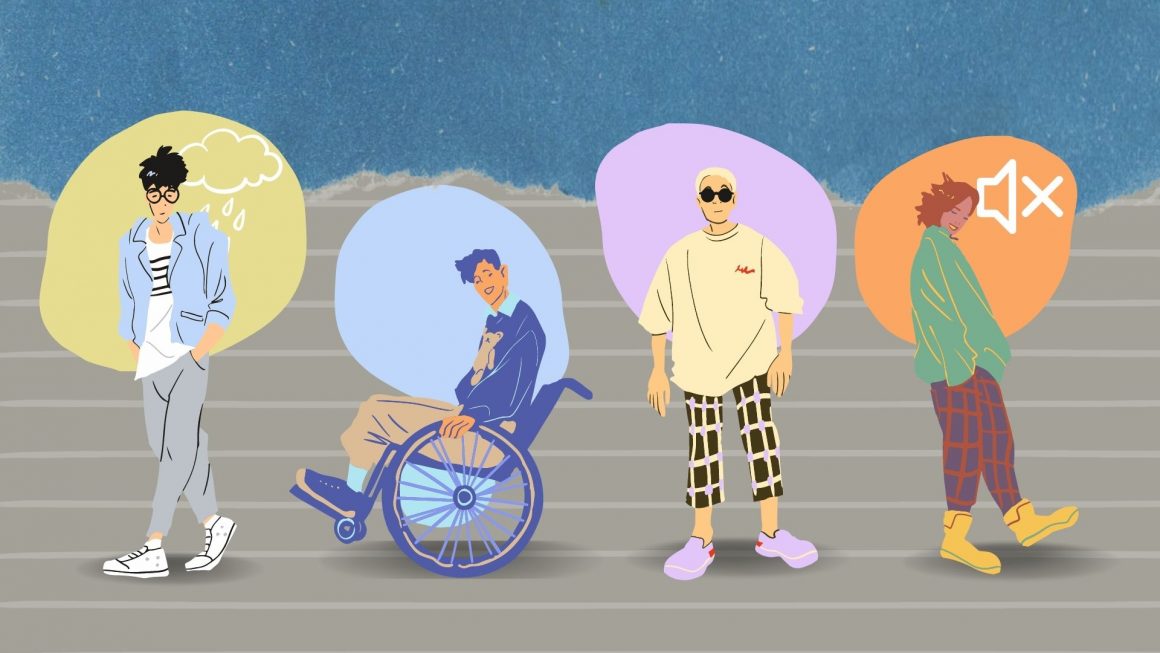
Courageous Conversations honour Human Rights Day
By Sophia Lopez, January 5 2022—
Dec. 10 marked national Human Rights Day and the University of Calgary’s Courageous Conversations speaker series held an online event hosted by Dr. Malinda Smith, the U of C’s vice-provost and associate vice president research of Diversity, Equity, and Inclusion (EDI).
For the final Courageous Conversation of the year, Smith along with the guest speakers, discussed ableism, disability justice and accessible future in post-secondary education.
The speaker series invited Dr. Laverne Jacobs of the University of Windsor and Dr. Jay Dolmage of the University of Waterloo –– two scholars who are well-known for their work in disability studies.
Smith first introduced Elder Colleen Sitting Eagle, a Siksika Language Instructor at Siksika Outreach School located in Siksika Nation, who began with a prayer and went on to discuss the topic of disabilities.
The conversation then took place starting with Dolmage, who has published several books on his research on disability and began the conversation by talking about academic ableism.
“Twenty-four per cent of first-year university students self declare as having a disability most commonly related to mental health,” said Dolmage. “But that 24 per cent is in stark contrast to the only six to nine per cent of university students who get help. These statistics only speak for the very small number of students who successfully navigate the complicated accommodation process to seek help. It’s because we stigmatize disability — the result is a culture of silence and passing.”
He continued on to discuss how in order to tackle academic ableism, we must look at the history of it and how other forms of discrimination such as racism continuously affect academic ableism.
“How can we really understand the complicated problems we face as a society when disabled people are absent from classrooms, labs and research teams? Their inclusion is essential,” said Dolmage. “Educators have to recognize both the long history of exclusion and experimentation upon people with disabilities, as well as the more recent history of academic ableism.”
Following Dolmage was Jacobs, a professor of law and Canada’s candidate for the UN committee on the rights of persons with disabilities. She redirected the conversation to focus on meaningful access to post secondary education and disability justice. While the fight for academic accommodations has been occurring for many years now and progress has been made, Jacobs emphasizes how so much more is still needed to be done.
“Disability is sometimes –– and often I think –– seen as a legal concern,” said Jacobs. “There’s still miles to go, unfortunately now at the end of 2021.”
After the two panelists discussed their studies, Smith asked them how universities could do better in regards to making education more accessible and getting rid of the stigma behind accommodations.
“I think that training is important,” Jacobs responded. “Talk about different experiences of disability –– I think the more that we can get this kind of information out there so that it’s normalized, then the more both faculty and students, and staff as well, will start to realize the need for different types of accommodations.”
Dolmage pointed out the conservative nature of education, and how situations such as COVID-19 have made accommodations people with disabilities have been fighting to have, possible. He also spoke on how the current liberal online testing structure that was set in place due to COVID-19 is one that should have been introduced long ago.
“We didn’t change things for so long because we’re very conservative –– we keep doing things the way they were done to us,” said Dolmage. “The only thing that a timed test or exam does, is it makes sure that unfair and discriminatory hierarchies that pre-existed the exam or test are maintained and retained. So first generation college students, students with different linguistic backgrounds, class backgrounds, racialized students, they do more poorly because the instrument is not designed for them.”
Jacobs shared her own experiences of being a person with disabilities and how with her use of a power wheelchair she often faces barriers.
“If I’m not advised of meetings being changed, or canceled early enough, it may be impossible for me to get transportation, reorganize support workers and things like that,” said Jacobs. “So I think that there are a number of barriers in that way.”
Smith concluded the conversation by thanking the panelists and the audience for their engagement, while highlighting the meaning behind Courageous Conversations.
“Courageous Conversations is a speaker series designed to spark honest, and challenging dialogue that we need to be having as a society, as a university in order to work together to transform injustices and to build a more equitable, inclusive and accessible future for all,” said Smith. “So thank you to the panelists for your wisdom. Thank you to those who submitted questions and for your engagement, and we really appreciate your participation and willingness to have these ongoing conversations with us.”
The next Courageous Conversations webinar will take place on Jan. 20, 2022. To watch a recording of the webinar and for additional resources on the topic of ableism, disability justice and accessible future in post-secondary education, visit the University of Calgary’s website. For more information on how to register for the next webinar, check it out online.
